General
iCARTA Workshop Empowers 37 Makerere University Academics, Professionals & Administrators
Published
3 years agoon
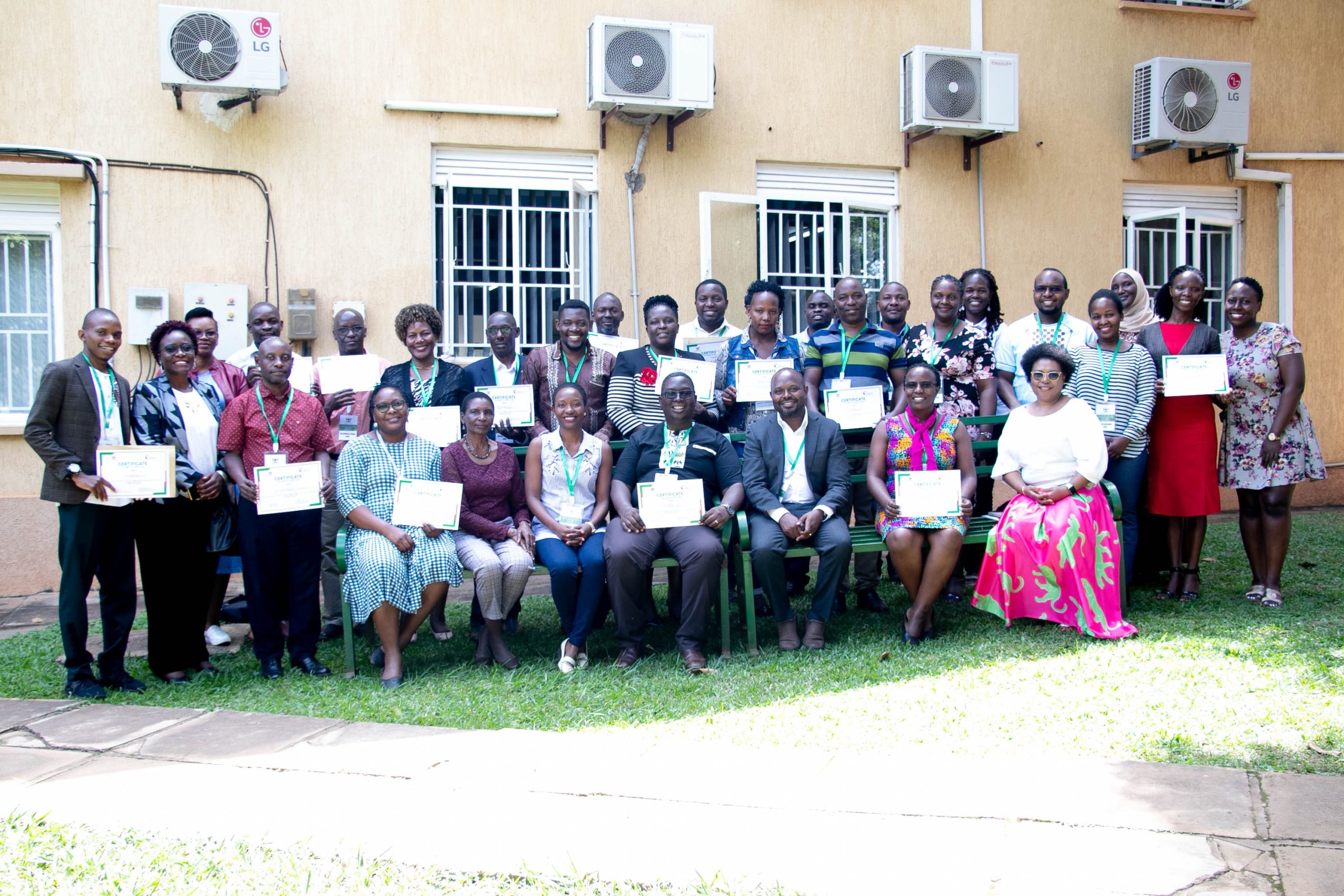
A total of 37 staff drawn from the various units at Makerere University have successfully completed the Training of Trainers (ToT) Academic, Professional and Administrative staff -APAS course, thanks to the Consortium for Advanced Research Training in Africa (CARTA).
In line with CARTA’s mainstreaming initiatives, the weeklong workshop from July 17–21, 2023, aimed to improve institutional responsiveness to graduate training and research and equip trainees to efficiently lead APAS workshops for their units.
The Consortium initially applied for and was awarded a NORHED II grant for the institutionalization of Advanced Research Training in Project Africa in order to institutionalize the gained experiences and best practices for sustainability.
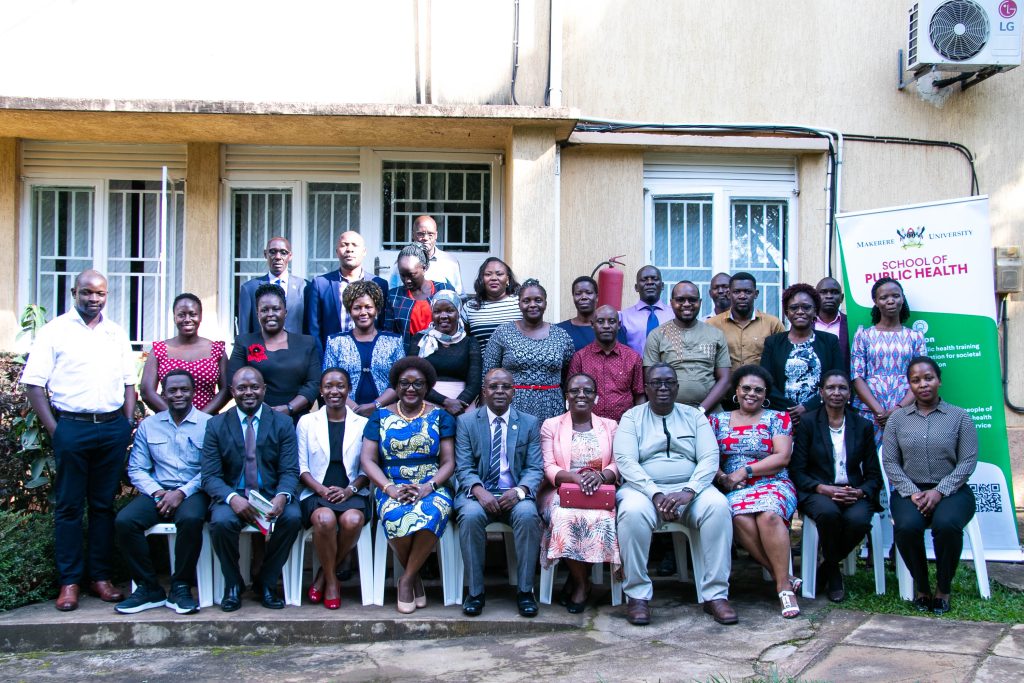
Dr. John Bosco Isunju, a Lecturer at MakSPH and CARTA Focal Person Makerere University remarked; “The APAS workshop is one of these innovations to enhance the capacity of institutional functionaries to create an enabling environment for high quality research and graduate training.”
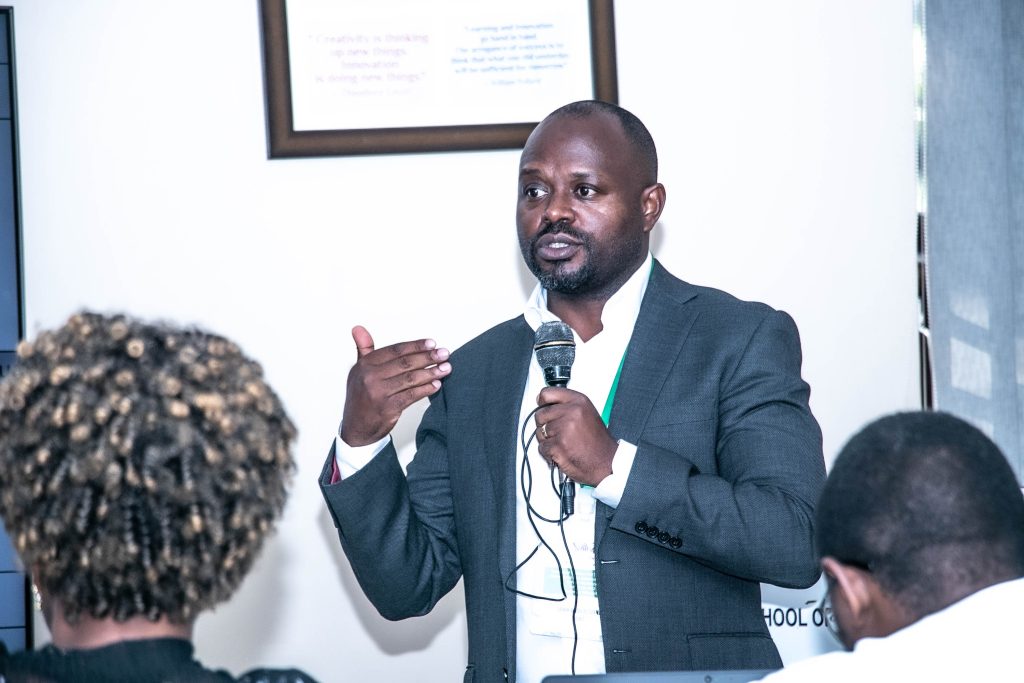
Professor Anne Kisaka Nangulu, an economic historian and the Principal of Bomet, a Moi University constituent college in Kenya, challenged iCARTA trainees to demonstrate good academic citizenship and integrity.
She also gave advice to the trainees on how to lead ethically: “Leading in a manner that respects the rights and dignity of others, knowing your core values, and having the courage to live them in all of your life as well as parts of it in service of the common good are important.”
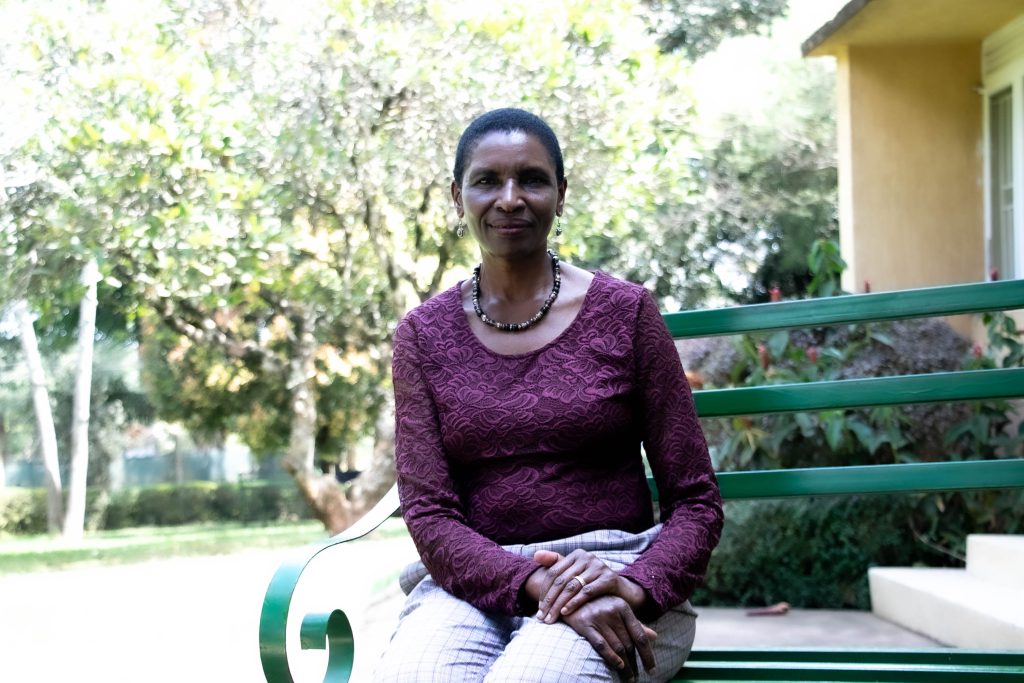
Prof. Nangulu observed, “Whenever we have new graduates, I just feel wonderful. I not only feel nice but I sleep well. CARTA philosophy is to stop brain drain and demonstrate to the rest of the world our independence. Just remember there’s is no institution without people as you go about your day. Please make a tiny adjustment where you are. I believed that we all have great potential. Although I’ve never believed in teamwork, I do believe in group work. Let this APAS be a community that exists. Change using this platform.
Dr. Daphney Nozizwe Conco, a Senior Lecturer at University of the Witwatersrand School of Public Health and CARTA facilitator urged the ToT graduands to; “Use this platform for connecting and enhancing the CARTA vision. What pays us is the impact. You can’t quantify it. Most of the time, such a training is a stepping stone. Such moments are overwhelming. Being in Makerere University is a moment of pride as South African. Historical moments.”
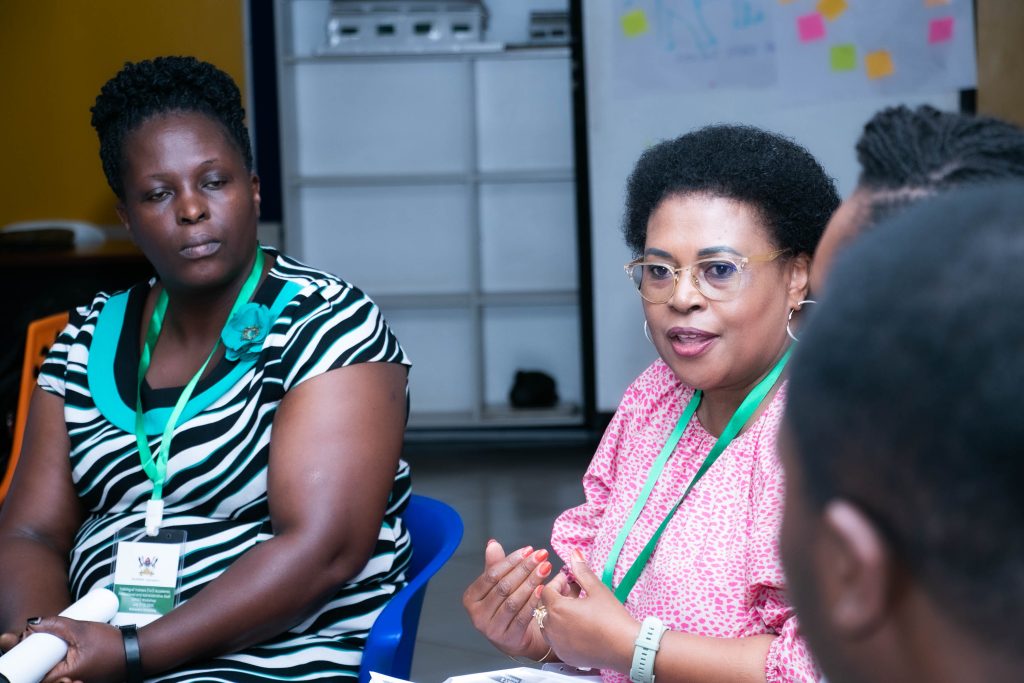
Dr. Rhoda Wanyenze, Professor and Dean, MakSPH hailed CARTA for the opportunity to train the staff citing that Makerere University cannot improve graduate training when its support system improve including the administrators is not improved.
Professor Wanyenze urged the trainees as strong support system of the university to work with diligence and ensure the university stakeholders good experience and services from the university for improved relations.
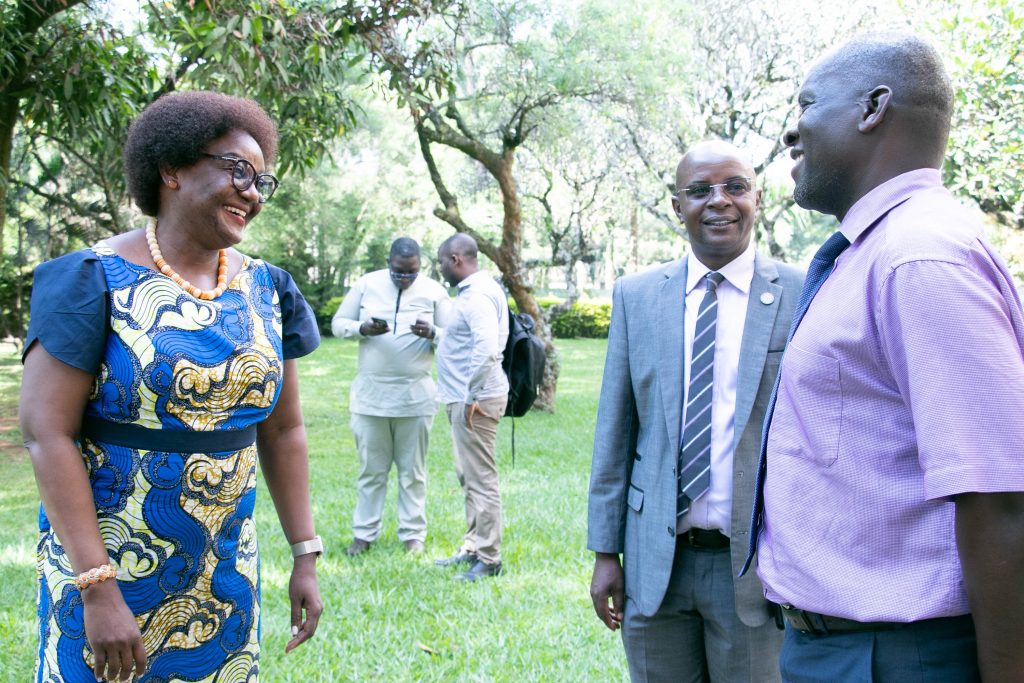
“How can we provide quality support system to our students so that they can come to us again? We like to create alumni networks and we want them to engage with us, contribute the money. Are we sure they want to see us or look in our eyes? You are supporting your future collaborators when you are supporting your students. There has to be quality, quality is more of perception. What people feel about what we do is the quality that lasts in their minds. Forget about the standards, people will always remember how they are treated whenever they interact with us,” said.
Professor Wanyenze thanked the organizers of the training under CARTA for supporting Makerere University towards realizing its ambitious target of becoming a “research-led” institution with a multi-faceted research agenda.
“We are talking instutionalisation. CARTA was helping us to do what we were supposed to do. It is excellent because it talks about training people locally. CARTA is a great program for me in many ways. I hope we can institutionalise some of those good practices,” she noted.
According to Professor Wanyenze, every time universities have policy shifts they tend to focus on professors but not both the professors and the support systems.
“The biggest challenge that we have in our graduate training in most of the universities in Africa that I know; is support systems. We are not going to improve graduate training in Makerere University unless we improve support systems. Everybody that comes in contact with or interfaces with graduate students has a role to play in graduate training. In terms of ensuring training quality and an enjoyable time at university. How do you handle the students when they come to you as finance officers, what about the administrators, who delays submission of the dissertation books when they have been submitted? We need to put the systems right and start looking at a student as a human being. We have to interface with the students and engage them as human beings,” observed Prof. Wanyenze.
Professor Edward Bbaale, Director of Research and Graduate Training at Makerere University, stressed the importance of providing students with excellent experiences during their time at the university. He highlighted that these students could become future leaders, and their experiences could have a significant impact, potentially holding consequences if mishandled.
“The current Permanent Secretary Ministry of Finance/Secretary to the Treasury was my student in economics through his undergraduate degree. Still, when he came back for his master’s degree, I taught him and also supervised his research, but I didn’t know that this young man would at one time be the one making decisions on how much money comes to Makerere University,” said Prof. Bbaale.
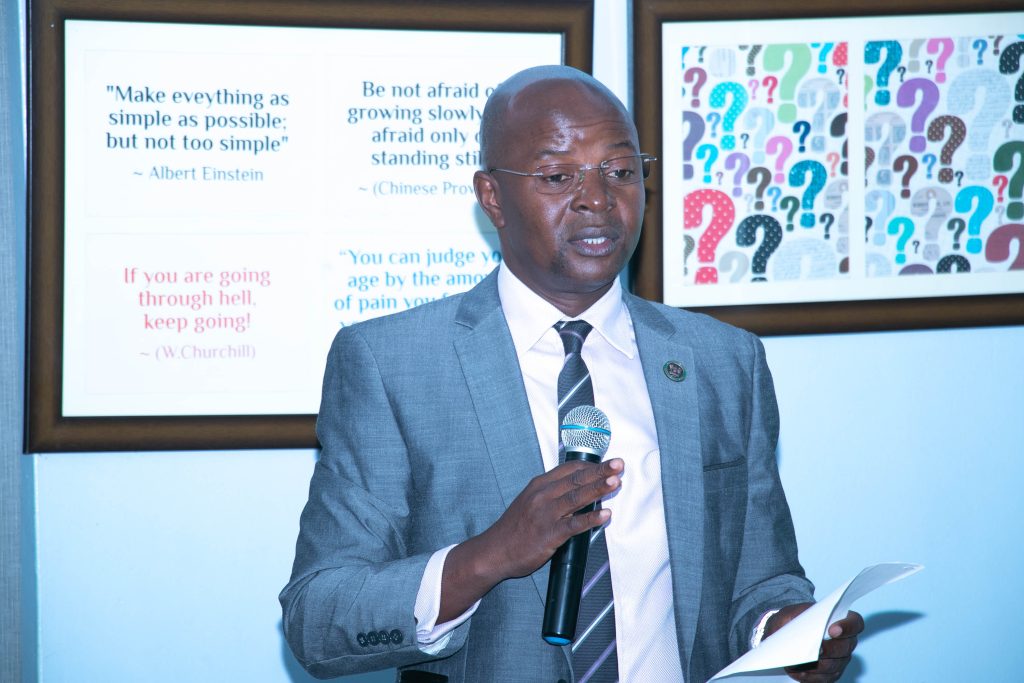
“I don’t know how I treated him as a student. Recently, the undersecretary in the ministry of finance, who is now a council member, was our PhD student in economics, and I don’t know how we treated him. Those two people combined, if they are to fail the university in terms of financing as a payback, can Both of them were our students in the same environment, but we really thank God that maybe they are working in our favor. One of them is a council member making critical decisions,” he added.
Huzaifah Mutyaba, an administrator at MakSPH, committed to implementing the APAS program after receiving facilitator training. “I have met a lot of new friends. We are going to meet soon, and we shall be discussing how to support our other colleagues to support graduate training and research at Makerere University,” Mutyaba said.
Jackie Norah Nanteza, an iCARTA trainer, emphasizes that quality goes beyond standards; it’s about how the recipients of your services perceive them. “This has been a very wonderful group to facilitate speaking sincerely. Continuously building on capacity and enthusiasm, you feel like there is power inside you. Get that energy and commit to doing better things.”
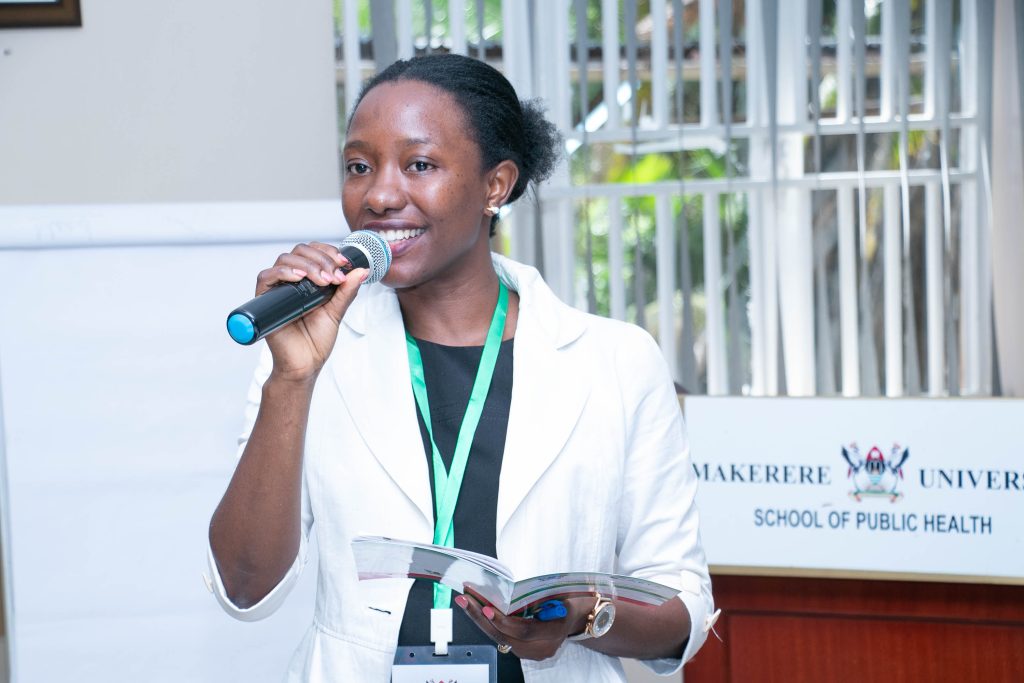
Alison Annet Kinengyere, a Library and Information Scientist at Sir Albert Cook Medical Library, commended the participants for their dedicated attendance throughout the five-day course. “I am impressed by the participants’ commitment. At Makerere University, for participants to be available for the five days is a great thing, and I congratulate all of you on your successful completion of this course.”
Twenty years ago, CARTA was formed to address a critical gap in research capacity in African public universities through a suite of interventions to enhance individuals’ and institutional capacities for high quality research at eight institutions.
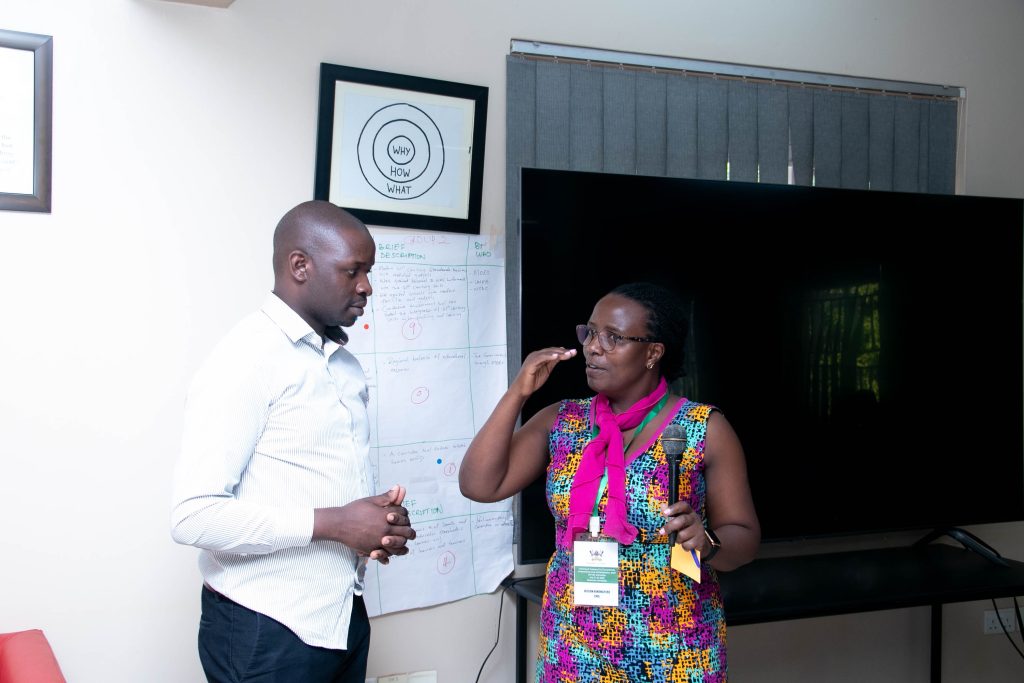
The Consortium composed of African (Malawi, Uganda, Rwanda, Kenya, Tanzania, Nigeria, and South Africa) and non-African partner universities and institutions from Norway, Sweden, Switzerland, and the UK sought to produce high-quality early career researchers (ECRs) who will, in turn, become research leaders enhancing the engagement between the CARTA community (ERC’s, supervisors, graduates) and society to influence policy and programmatic change to improve long-term health outcomes.
Dr. Isunju observes that CARTA trains doctoral and post-doctoral students and other institutional functionaries that support research and graduate training. “So far 22 PhD fellows have graduated and another five in the pipeline to graduate soon. We are very grateful for what CARTA has done.”
CARTA not only trains doctoral students but also provides support to various university staff members, including administrative, professional, and academic roles. APAS was initially targeted at administrative and academic staff. It was later expanded to include crucial professional roles like communications, procurement, and registrars, recognizing their pivotal role in advancing graduate education and research within our institutions.
The first APAS ToT which was held at Makerere University where CARTA trained three people from each of the main institutions in Uganda, Nigeria, Ghana, Wits, Malawi, Nairobi -Moi and University Rwanda. who have since become our local trainers. In Makerere University, Jackie Nanteza, Dr. Andrew Tamale and Dr. Alison Kinengyere benefited from the initial training.
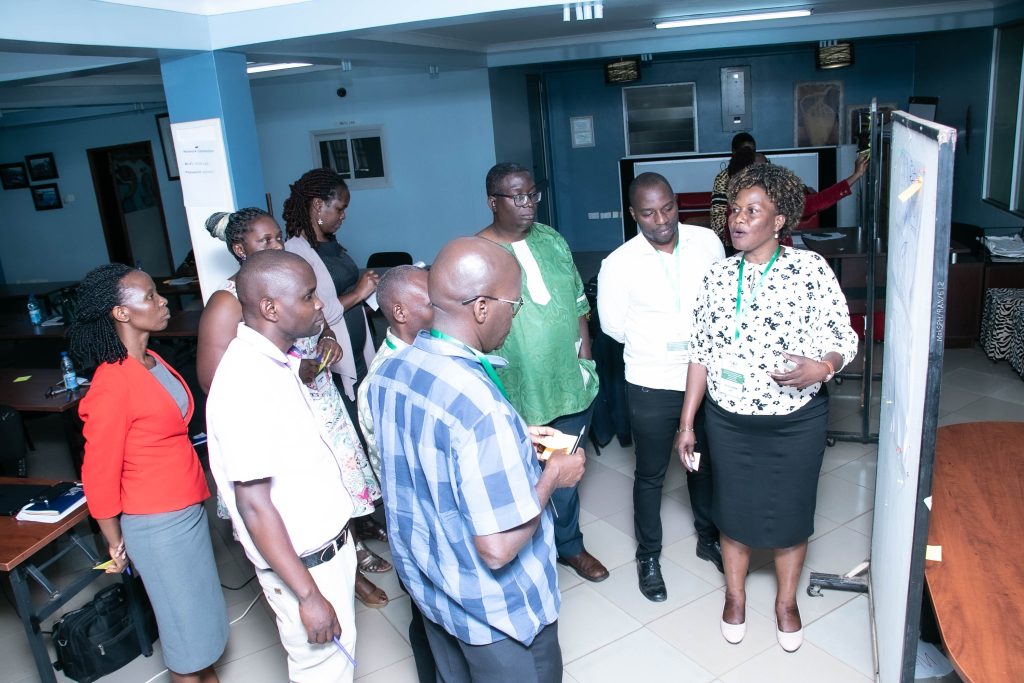
According to Prof. Bbaale, Makerere University’s strategic plan 2020-2030 aims at transforming a university into a research led institution and that one of the building blocks for this realization is to increase graduate enrolment and knowledge production that responds to national, regional and global developments and challenges.
He highlighted that Makerere University is determined to have the share of graduate students at 30% by 2030 many of which must be international students. “The School of Public Health and the entire College of Health Sciences has already gone over and above this target but definitely your performance is dampened by the rest of the units in the university taking us to around 12%,” Prof. Bbaale said.
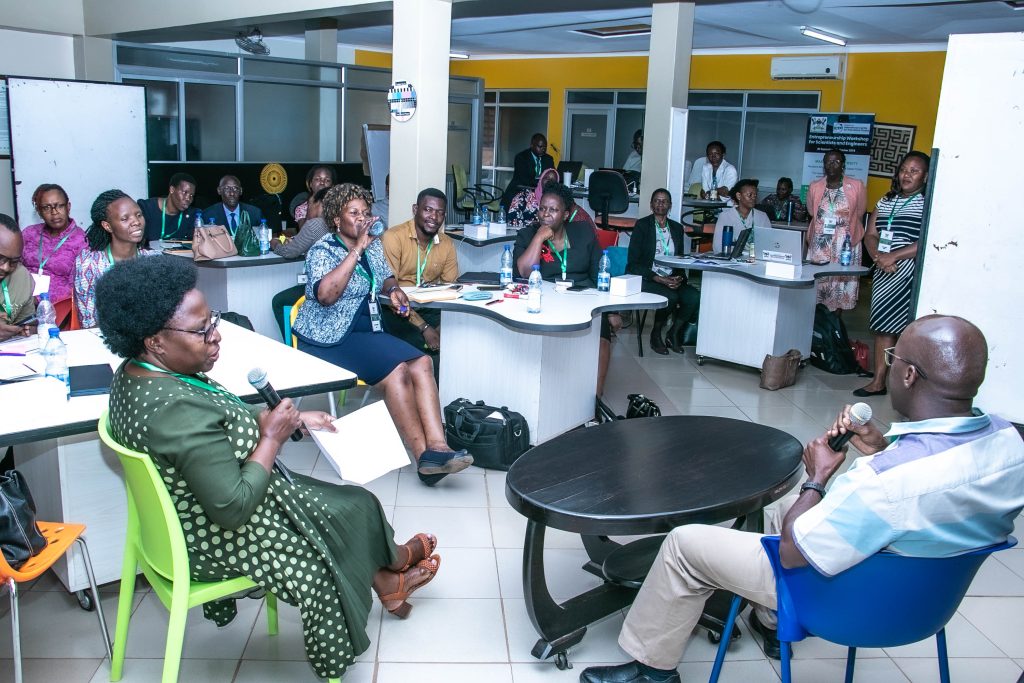
He added that; “We want to internationalize as much as possible, out of the 30% target for graduate students, we want to have 10% international students but currently we are around 2%. The second building block of our strategic plan is establishing research entities that leverage largescale multidisciplinary and multi-institutional research activities. The third block is packing and marketing of research outputs for appropriate adoption to impact communities. Makerere University through UNDP has established an innovation hub in an effort to package the research outputs and innovations.”
Dr. Bbaale emphasizes DRGT’s commitment to graduate education and research. “Collaboration with various units continues to improve,” he says. The number of PhD students enrolled and graduating has steadily risen, and despite resource limitations, every department at Makerere can at present supervise doctoral students.
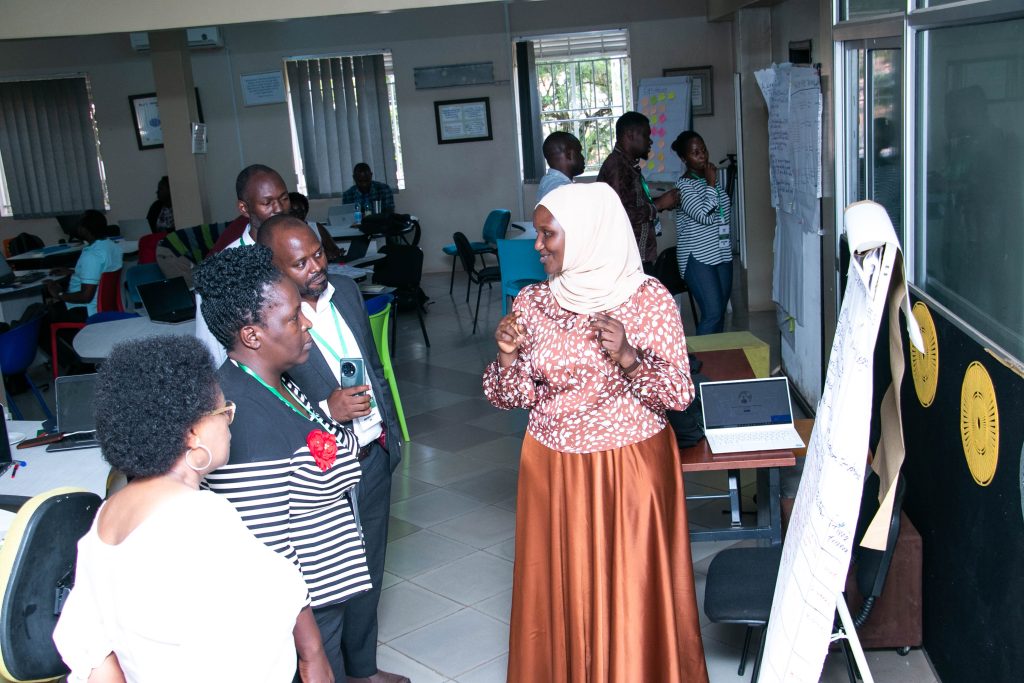
Prof. Bbaale is enthusiastic about participants becoming trainers since it is in line with Makerere University‘s ambition on being a research-led institution. The program boosts facilitators’ abilities, addressing PhD training capacity.
“It is interesting to note that the ToT program seeks to enable trainees to effectively create a multiplier effect in their respective units. This model is quite unique. It will build a critical mass of trainers with a requisite capacity to manage doctoral studies in respective units. I would like to congratulate the MakSPH for taking lead in this front and for building synergies with DRGT as we strive to take graduate training and research at our university. I would like to appreciate the CARTA secretariat that combined effort with Makerere University that led to the grant that is enabling all these activities to take place. I would like to appreciate the vice chancellor for the able and visionary leadership that has identified,” he said.
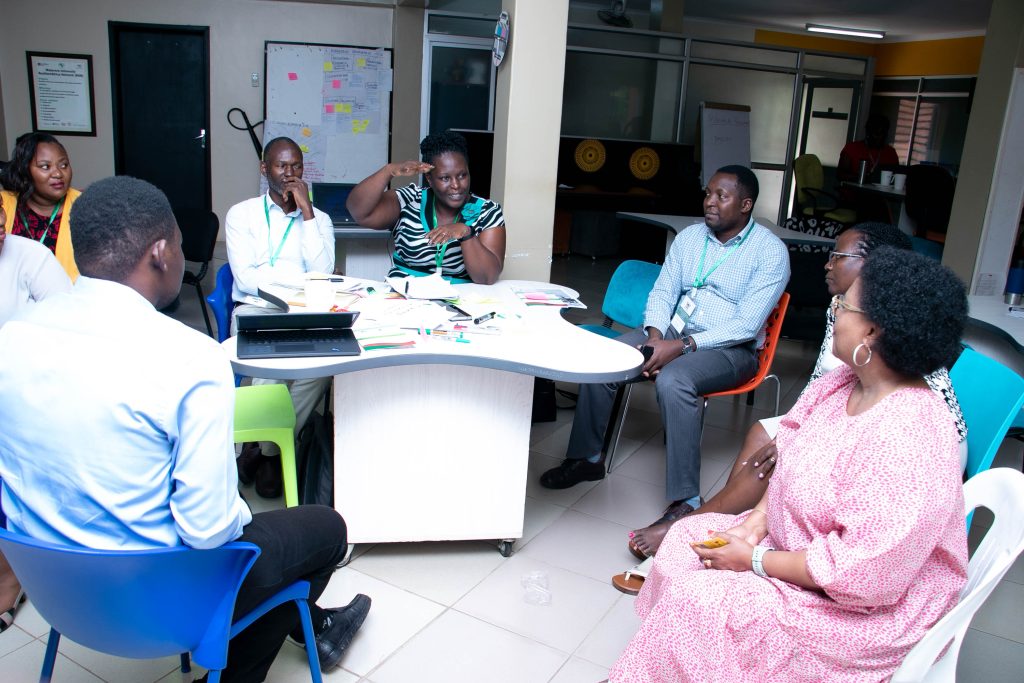
You may like
-


Over 9,200 to graduate at Makerere University’s 76th Graduation
-


76th Graduation Highlights
-


Meet Najjuka Whitney, The Girl Who Missed Law and Found Her Voice
-


Makerere University School of Public Health Graduates First Cohort of Cost-Effectiveness Analysis Short Course
-


Climate variability found to shape malaria trends in Yumbe District
-


Mak hosts First African Symposium on Natural Capital Accounting and Climate-Sensitive Macroeconomic Modelling
General
Over 9,200 to graduate at Makerere University’s 76th Graduation
Published
9 hours agoon
February 24, 2026
Pomp and colour defined the opening day of the Makerere University’s 76th Graduation Ceremony as thousands gathered to celebrate academic excellence and new beginnings.
The historic ceremony has brought together scholars, families, friends and industry partners in a vibrant celebration of achievement and possibility. Throughout the four-day event, the University will confer degrees and award diplomas to 9,295 graduands in recognition of their dedication and hard work.
Among the graduates, 213 will receive Doctor of Philosophy (PhD) degrees, 2,503 will graduate with Master’s degrees, and 6,343 will earn Bachelor’s degrees. In addition, 206 students will graduate with postgraduate diplomas, while 30 will be awarded undergraduate diplomas.
Of the total number of graduands, 4,262 are female and 5,033 are male. According to Vice Chancellor, this marks the first time in 15 years that male graduands have outnumbered their female counterparts.
The best overall graduand in the Sciences, Esther Ziribaggwa, graduated on the opening day with the Bachelor of Agricultural and Rural Innovation and an impressive Cumulative Grade Point Average (CGPA) of 4.77.

The ceremony marks a proud moment for Makerere University as it continues to nurture top-tier professionals across diverse fields.
While presiding over the graduation, the State Minister for Primary Education, Hon. Dr. Joyce Moriku Kaducu, on behalf of the First Lady and Minister of Education and Sports, Hon. Janet Kataaha Museveni, pointed out that Makerere University is a model institution, where leaders are nurtured, scholars are sharpened, and where dreams have been given direction.
In her address, Hon. Museveni, highlighted Government’s deliberate investment in research, innovation, and infrastructure to strengthen higher education in Uganda.
“The establishment of the Makerere University Research and Innovation Fund (RIF), supports high-impact research and innovation that directly contributes to national priorities and development. Through this initiative, thousands of researchers and innovators have pursued practical, scalable solutions that are transforming communities and key sectors across Uganda,” Mrs Museveni, said.
The Minister also noted that Parliament’s approved a USD 162 million concessional loan to upgrade science, technology, and innovation infrastructure at Makerere University. The funding will facilitate the construction of modern laboratories, smart classrooms, and state-of-the-art facilities for Engineering and Health Sciences, investments expected to position the University firmly within the Fourth Industrial Revolution.
“Government has embarked on the construction of a National Stadium at Makerere University and other institutions of higher learning across the country. This will promote physical education, strengthen talent identification, and boost investment in the sports sector,”

Turning to the graduands, the Minister encouraged them to see themselves not merely as job seekers, but as job creators and solution-makers.
Uganda and Africa need innovators who will modernize agriculture; engineers who will build quality infrastructure; healthcare professionals who will strengthen health systems; and educators who will inspire the next generation,” the Honourable Minister said.
She reminded graduates that they are entering a rapidly changing world shaped by Artificial Intelligence, climate change, and shifting global markets. To thrive, she advised them to remain adaptable, creative, and committed to lifelong learning.
She also encouraged graduates interested in entrepreneurship to tap into the Government’s Parish Development Model, which provides community-based financing and production support.
Quoting Proverbs 3:5–6, the Minister urged the graduates to trust in God as they embark on their next chapter.
She extended special appreciation to the Mastercard Foundation for its 13-year partnership with Makerere University in expanding access to education and empowering young people in Uganda and beyond.
In his speech, the Chancellor of Makerere University, Dr Crispus Kiyonga, urged graduands to harness research, innovation and technology to drive Uganda’s transformation.

“This is a milestone in your lives. You have invested time, discipline and hard work to attain these qualifications. It is important that you derive value from this achievement, not only for yourselves, but for your families and for society.” Dr Kiyonga, said.
Dr. Kiyonga expressed gratitude to the Government of Uganda for its continued financial support to the University, particularly the funding allocated under MakRIF, which he described as critical in strengthening the institution’s research capacity.
“Research plays a very vital role in the development of any community. Makerere as the oldest University in the country is doing a significant amount of research, However, more work is required to mobilize additional resources to further strengthen research at the University.” Dr Kiyonga, noted.
Acknowledging the challenges of a competitive job market, Dr. Kiyonga encouraged graduates to think beyond traditional employment pathways.
“It is true that the job market may not absorb all of you immediately. But the knowledge you have acquired is empowering. You can create work for yourselves, individually or in teams.” Dr Kiyonga, said.
He advised the graduands to embrace discipline, integrity and adaptability in the workplace, and to take advantage of technology and digital platforms to innovate and respond to societal challenges.
“Every development challenge presents an opportunity. Believe that you can apply your knowledge to create solutions with impact.” He said.
Addressing the congregation, the Vice Chancellor, Prof Barnabas Nawangwe, congratulated the graduands, particularly staff and societal leaders on their respective achievements.

“I congratulate all our graduands upon reaching this milestone. In a special way I congratulate the members of staff, Ministers, and Members of Parliament that are graduating today as well as children and spouses of members of staff,” Prof Nawangwe, said.
In his speech, Prof Nawangwe, recognized outstanding PhD students, particularly members of staff. who completed their PhDs in record time without even taking leave from their duties.
He called upon graduates not to despise humble beginnings but rather reflect on the immense opportunities around them and rise to the occasion as entrepreneurs.
“You are all graduating with disciplines that are needed by society. We have equipped you with the knowledge and skills that will make you employable or create your own businesses and employ others. Do not despair if you cannot find employment. Instead, reflect on the immense opportunities around you and rise to the occasion as an entrepreneur,” Prof Nawangwe, said.
Prof Nawangwe called upon the graduands of PhDs to use their degrees to transform the African continent.
“As you leave the gates of Makerere I urge you to put to good use the knowledge you have received from one of the best universities in the World to improve yourselves, your families, your communities, your Country and humanity. Let people see you and know that you are a Makerere alumnus because of the way you carry yourself in society with dignity and integrity. Put your trust in God and honour your parents and opportunities will be opened for you,” Prof Nawangwe, said.
Delivering a key note address, Prof. Nicholas Ozor, the Executive Director of the African Technology Policy Studies Network Nairobi, Kenya ((ATPS). Reminded the graduates that a degree is not a finish line but the beginning of accountability. “The world is a complex, fast changing and deeply unequal. Degrees make you responsible for others not better than them,” Prof Ozor, said.

The 76th Graduation Ceremony of Makerere University will be held from Tuesday 24th to Friday 27th February, 2026. A total of 213 PhDs (87 female, 126 male), 2,503 Masters (1,087 female, 1,416 male), 206 Postgraduate Diplomas (80 female, 126 male), 6,343 Undergraduate Degrees (2,999 female, 3,344 male), and 30 Undergraduate Diplomas (9 female, 21 male) will be graduating from all the Colleges.
Ms. Sarah Aloyo and Ms. Nakato Dorothy both students of the Bachelor of Procurement and Supply Chain Management emerged as the best in the Humanities and Best Overall students with a CGPA of 4.93. Mr. Ssewalu Abdul, a Bachelor of Leisure and Hospitality Management student emerged second best in the Humanities with a CGPA 4.90. Ms. Esther Ziribaggwa emerged as the best student in the Sciences with a CGPA of 4.77 in the Bachelor of Agricultural and Rural Innovation, while Mr. Simon Mungudit emerged second best in the Sciences with a CGPA of 4.76 in the Bachelor of Science in Petroleum Geoscience and Production.
Commencement Speakers
- Day 1 – Prof. Nicholas Ozor, the Executive Director of the African Technology Policy Studies Network, Nairobi, Kenya
- Day 2 – Prof. Dr. Maggie Kigozi, Chairperson Makerere University Endowment Fund Board
- Day 3 – Dr. Patricia Adongo Ojangole, Managing Director, Uganda Development Bank Limited
- Day 4 – Ms. Reeta Roy, Former President & Chief Executive Officer, Mastercard Foundation
The 76th Graduation Ceremony will be held at the Freedom Square following the schedule below:
Tuesday, 24th February, 2026
College of Agricultural and Environmental Sciences (CAES)
College of Computing and Information Sciences (CoCIS)
College of Education and External Studies (CEES)
School of Law (SoL)
Livestream Link for Day 1: https://youtube.com/live/wVGPA0FJ9pU
Wednesday, 25th February, 2026
College of Health Sciences (CHS)
College of Natural Sciences (CoNAS)
College of Veterinary Medicine, Animal Resources and Bio-security (CoVAB)
School of Public Health (SPH)
Thursday, 26th February, 2026
Makerere University Business School (MUBS)
College of Business and Management Sciences (CoBAMS)
Friday, 27th February, 2026
College of Engineering, Design, Art and Technology (CEDAT)
College of Humanities and Social Sciences (CHUSS)
Institute of Gender and Development Studies (IGDS)
Makerere Institute of Social Research (MISR)
General
Mak Selected to Host Alliance for African Partnership Africa Office
Published
2 days agoon
February 23, 2026
Makerere University has been selected to host the Africa Office of the Alliance for African Partnership (AAP). The significant milestone that underscores Makerere’s role in fostering research, innovation, and global collaborations across the continent was announced at a meeting of the University’s Central Management with an AAP delegation on 23rd February 2026.
Makerere’s selection was based on the University’s robust commitment, alignment with the AAP’s Strategic Plan, and proven ability to manage consortium activities. The AAP, which was initiated by Michigan State University (MSU) in collaboration with Ten African Universities and agricultural policy research networks in 2016, targets critical challenges in education, youth empowerment, health and nutrition, agri-food systems, science and technology, water, energy, environment, and culture and society.
Addressing the delegation consisting of AAP Co-Directors from MSU, Dr. Jose Jackson-Malete and Dr. Amy Jamison, accompanied by newly-appointed Director of the AAP Africa Office, Dr. Racheal Ddungu Mugabi and Ms. Clare Cheromoi, the Vice Chancellor, Prof. Barnabas Nawangwe who appreciated the choice of Makerere to host the Africa Office said:
“One of the greatest challenges facing African universities is PhD training, particularly supervisory capacity. Through partnerships such as the Alliance for African Partnership we can leverage international expertise to strengthen supervision—whether through training supervisors or through joint supervision arrangements.”
Prof. Nawangwe equally applauded joint initiatives such as the Grant Writing and Publication project, which gave rise to the establishment of a Writing Centre that he said can be used to build capacity in AAP member universities with Makerere as the hub. Officially launched on 21st March 2023, the project is living up to its expectation of becoming a springboard for strong postdoctoral collaborative research for both institutions and other US universities.
Dr. Titus Awokuse, Vice Provost and Dean for International Studies and Programs at Michigan State University (MSU) who attended virtually, reiterated that Makerere’s selection reflects its long-standing commitment to advancing African higher education, research excellence, and meaningful global collaboration.
Reflecting on the origins of the Alliance for African Partnerships (AAP), Dr. Awokuse explained that nearly a decade ago, MSU initiated a transformative conversation in Atlanta centered on the question: How should we partner differently? From this dialogue emerged AAP—an Africa-centered consortium that now brings together 12 institutions across Africa and the United States.

He emphasized that AAP is grounded in equity, mutual benefit, shared leadership, and deep respect for African priorities and expertise. Since its founding, MSU has served as convener and key supporter, working with member institutions to strengthen research collaboration, promote faculty and student engagement, and address shared development priorities.
Dr. Awokuse underscored that AAP’s success is the result of collective vision and commitment, not the efforts of a single institution. He paid tribute to Lilongwe University of Agriculture and Natural Resources for hosting the Africa Office in its early years and acknowledged the foundational leadership of the inaugural Africa Office Director.
He described the launch of the Africa Office at Makerere University as a significant milestone that reinforces Africa-led leadership, strengthens regional collaboration, and enhances responsiveness to emerging opportunities. MSU, he affirmed, remains fully committed to AAP and to working closely with Makerere and all consortium partners to expand collaborative research, nurture the next generation of scholars, and advance Africa-led solutions to global challenges.
The newly-appointed AAP Africa Office Director, Dr. Racheal Ddungu Mugabi is a member of faculty in the Department of Development Studies, Institute of Gender and Development Studies. Her work on intersectional inequalities in Uganda and other Global South regions uniquely positions her to drive collaborative research and partnerships at the Africa Office.
Initially founded by ten African Universities and MSU, AAP now comprises eleven African members including; the African Network of Agricultural Policy Institutes (ANAPRI)-Zambia, Egerton University-Kenya, Lilongwe University of Agriculture and Natural Resources (LUANAR)-Malawi, Makerere University-Uganda, United States International University-Africa-Kenya, Universite Cheikh Anta Diop-Senegal, Universite Yambo Ouologuem de Bamako-Mali, University of Botswana-Botswana, University of Dar es Salaam-Tanzania, University of Nigeria, Nsukka-Nigeria, and the latest, University of Pretoria-South Africa.
These Universites collaborate under Focal Points to advance policy-relevant research and sustainable development. Makerere University’s Focal Point is Prof. Robert Wamala, Director of Research, Innovations and Partnerships (DRIP).
Addressing the University Management, Dr. Jackson-Malete outlined the African Futures Research Leadership Program, which nurtures early career scholars through mentorship and skill-building as one of AAP’s flagship programs. She noted that the Program that prioritizes female participants or men committed to promoting women in higher education has for the first time during its fifth cohort admitted the first male, Dr. Alfadaniels Mabingo from the Department of Performing Arts and Film, Makerere University.
The AAP Africa Office at Makerere will coordinate activities, boost research collaboration, mobilize resources, and enhance global engagements for socio-economic transformation. This aligns with Makerere‘s broader goals of leveraging international expertise to build resilient institutions.
View more photos from the event: https://flic.kr/s/aHBqjCLjoA
Trending
-

 Humanities & Social Sciences2 days ago
Humanities & Social Sciences2 days agoMeet Najjuka Whitney, The Girl Who Missed Law and Found Her Voice
-

 Health6 days ago
Health6 days agoUganda has until 2030 to end Open Defecation as Ntaro’s PhD Examines Kabale’s Progress
-

 Agriculture & Environment5 days ago
Agriculture & Environment5 days agoUganda Martyrs Namugongo Students Turn Organic Waste into Soap in an Innovative School Project on Sustainable Waste Management
-

 General7 days ago
General7 days agoMastercard Foundation Scholars embrace and honour their rich cultural diversity
-

 Health2 weeks ago
Health2 weeks agoCall for Applications: Short Course in Molecular Diagnostics March 2026
